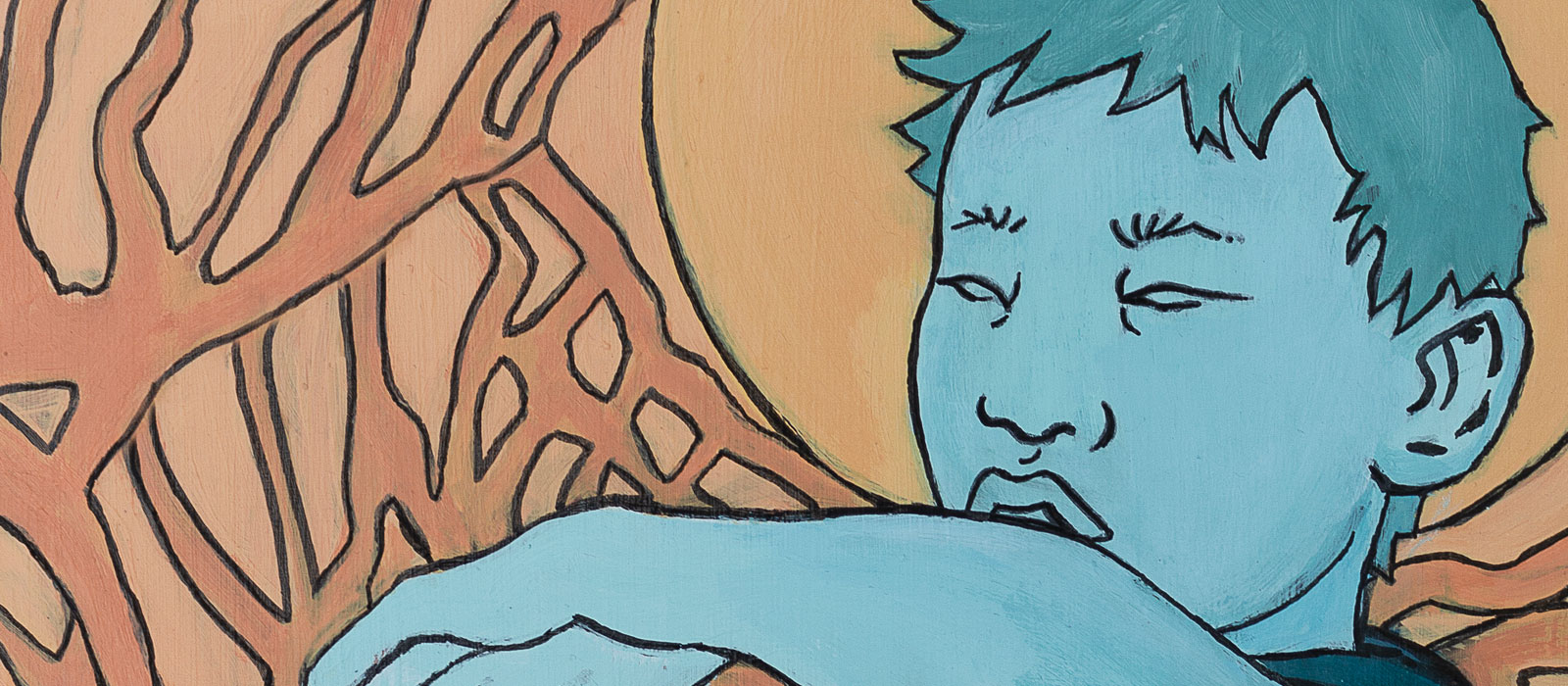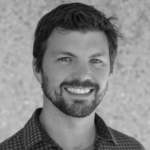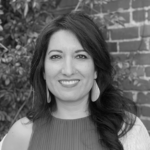
“Renewal” is, according to the Oxford English Dictionary, “the replacing or repair of something that is worn out, run down, or broken.” Thinking about the current state of the church in these United States, I (Inés) have often said in the past several years that it is a church that is broken, bandaged, and bruised. The church has not been a credible witness of the reconciling power of Christ purchased at the cross. She has not lived up to the liberating power of the gospel of a brown, Palestinian Jesus. Could there be hope for renewal at such a time as this?
When we ponder about the church of Jesus needing renewal, the first word that comes to mind is “healing.” The church needs healing. Her people need healing. Creation and our bodies groan in lament waiting for our redemption. If justice begins with repair, then first we must repair our bodies. Different bodies bear different burdens.
We planted The Church We Hope For in 2020, in the midst of the pandemic. We had to learn to be the body of Christ without a building—a brutal blessing that forced us to be attentive to our isolated bodies in need of repair. That’s where the wind of the Spirit rushed in and we began to hope for healing. And would you believe it? We began to see the work of healing among us! Healing work was holy work. Our bodies began to be re-membered. The Spirit was bringing us back to ourselves, back to God, and back to one another. The Spirit was reconstructing our fragmented selves and less-than-faithful theologies to the new thing God was doing among us.
Like those in the Spirit-led days of Acts 2, we now stand in awe at the church our God has knit together among us. Younger and older. Brown, Black, Asian, and White. Peacemakers, reconcilers, hope bringers. Those with deep, rooted faith. Those with hard, lingering doubts. People rooted in their local communities. People who’ve ventured from far away to call this place home. All coming together to embody the goodness of the good news.
The Church We Hope For is “a beloved community moved by the Spirit to follow the life, love, and justice of Jesus.” This is not only our vision; it’s also been our reality. And what a beauty it’s been to behold the dream Dr. King hoped for, as it comes to life through this body of Christ.
As our church plant first shared tables in January 2020, Nicaraguan black bean soup among us, we didn’t know that just two months later a global pandemic would quarantine us apart. And yet we sensed this church could be a healing place for the hurting. Our model of shared leadership—a brown, Latina, Nicaraguan, immigrant pastora co-leading in equity alongside a White, US-born, man from the Bible Belt South—both married but not to one another—had drawn skepticism, suspicion, and shame in some circles, for this is surely not what church leadership traditionally looks like! But we sensed the Spirit shaping a Kingdom-calling in us, to pursue oneness where there instead has long been division.
We bear witness to a Christ who still draws us together across lines that have painfully separated. And we behold this as the movement of the border-crossing God and boundary-breaking Spirit. This is slow moving, table-sharing, paradigm-shifting kind of work. And this is the ministry of Jesus among us.
“Come to me,” our Christ calls. “All who are weary and burdened,” he welcomes. “And I will give you rest,” he promises.
This invitation and declaration always felt so personal to me (Bobby). An intimate moment where my Jesus locks eyes with me and offers deep peace and presence for my life. But what if this tender, healing pronouncement of solidarity by the Son of God was also always communal? What if the “come to me” was also always about coming to the Body of Christ? What if this divine assurance of “rest” could be found in Christ’s body as the church? And not just the church-at-large, but what about discovering such shalom in a particular church body, in real time alongside real people?
The renewal we’ve seen as pastors of a local church at such a time as this has come from those we have walked alongside in our young, beautiful, imperfect, but totally tangible community. It’s people with real testimonios and real pain and real rejoicing. Each of us a physical representation of the Imago Dei with us. Immanuel in real time. The belonging we’ve all sought can be found in a body: Christ’s body. Christ, one to another. Christ, together.

Bobby Harrison is a pastor and preacher, writer and reconciler, and is co-lead pastor of The Church We Hope For in Pasadena, California. He holds an MDiv from Fuller Seminary and a journalism degree from Northwestern University. He is committed to the Kingdom-come work of multiethnic ministry and striving to see sisters and brothers equitably co-laboring and leading together, side by side, bringing greater beauty to the Body of Christ, one day at a time.

Inés Velásquez-McBryde is a pastor, preacher, reconciler, and speaker. She is co-lead pastor of The Church We Hope For in Pasadena, California. Originally from Nicaragua, she earned her MDiv at Fuller Seminary, where she was the recipient of the Ian-Pitts Watson Preaching Award and where she later served as a chaplain. With 20 years of combined ministry experience in church planting and pastoral staff leadership in multiethnic churches, she is passionate about racial reconciliation, justice, and the full inclusion of women in pastoral leadership.
“Renewal” is, according to the Oxford English Dictionary, “the replacing or repair of something that is worn out, run down, or broken.” Thinking about the current state of the church in these United States, I (Inés) have often said in the past several years that it is a church that is broken, bandaged, and bruised. The church has not been a credible witness of the reconciling power of Christ purchased at the cross. She has not lived up to the liberating power of the gospel of a brown, Palestinian Jesus. Could there be hope for renewal at such a time as this?
When we ponder about the church of Jesus needing renewal, the first word that comes to mind is “healing.” The church needs healing. Her people need healing. Creation and our bodies groan in lament waiting for our redemption. If justice begins with repair, then first we must repair our bodies. Different bodies bear different burdens.
We planted The Church We Hope For in 2020, in the midst of the pandemic. We had to learn to be the body of Christ without a building—a brutal blessing that forced us to be attentive to our isolated bodies in need of repair. That’s where the wind of the Spirit rushed in and we began to hope for healing. And would you believe it? We began to see the work of healing among us! Healing work was holy work. Our bodies began to be re-membered. The Spirit was bringing us back to ourselves, back to God, and back to one another. The Spirit was reconstructing our fragmented selves and less-than-faithful theologies to the new thing God was doing among us.
Like those in the Spirit-led days of Acts 2, we now stand in awe at the church our God has knit together among us. Younger and older. Brown, Black, Asian, and White. Peacemakers, reconcilers, hope bringers. Those with deep, rooted faith. Those with hard, lingering doubts. People rooted in their local communities. People who’ve ventured from far away to call this place home. All coming together to embody the goodness of the good news.
The Church We Hope For is “a beloved community moved by the Spirit to follow the life, love, and justice of Jesus.” This is not only our vision; it’s also been our reality. And what a beauty it’s been to behold the dream Dr. King hoped for, as it comes to life through this body of Christ.
As our church plant first shared tables in January 2020, Nicaraguan black bean soup among us, we didn’t know that just two months later a global pandemic would quarantine us apart. And yet we sensed this church could be a healing place for the hurting. Our model of shared leadership—a brown, Latina, Nicaraguan, immigrant pastora co-leading in equity alongside a White, US-born, man from the Bible Belt South—both married but not to one another—had drawn skepticism, suspicion, and shame in some circles, for this is surely not what church leadership traditionally looks like! But we sensed the Spirit shaping a Kingdom-calling in us, to pursue oneness where there instead has long been division.
We bear witness to a Christ who still draws us together across lines that have painfully separated. And we behold this as the movement of the border-crossing God and boundary-breaking Spirit. This is slow moving, table-sharing, paradigm-shifting kind of work. And this is the ministry of Jesus among us.
“Come to me,” our Christ calls. “All who are weary and burdened,” he welcomes. “And I will give you rest,” he promises.
This invitation and declaration always felt so personal to me (Bobby). An intimate moment where my Jesus locks eyes with me and offers deep peace and presence for my life. But what if this tender, healing pronouncement of solidarity by the Son of God was also always communal? What if the “come to me” was also always about coming to the Body of Christ? What if this divine assurance of “rest” could be found in Christ’s body as the church? And not just the church-at-large, but what about discovering such shalom in a particular church body, in real time alongside real people?
The renewal we’ve seen as pastors of a local church at such a time as this has come from those we have walked alongside in our young, beautiful, imperfect, but totally tangible community. It’s people with real testimonios and real pain and real rejoicing. Each of us a physical representation of the Imago Dei with us. Immanuel in real time. The belonging we’ve all sought can be found in a body: Christ’s body. Christ, one to another. Christ, together.
Bobby Harrison is a pastor and preacher, writer and reconciler, and is co-lead pastor of The Church We Hope For in Pasadena, California. He holds an MDiv from Fuller Seminary and a journalism degree from Northwestern University. He is committed to the Kingdom-come work of multiethnic ministry and striving to see sisters and brothers equitably co-laboring and leading together, side by side, bringing greater beauty to the Body of Christ, one day at a time.
Inés Velásquez-McBryde is a pastor, preacher, reconciler, and speaker. She is co-lead pastor of The Church We Hope For in Pasadena, California. Originally from Nicaragua, she earned her MDiv at Fuller Seminary, where she was the recipient of the Ian-Pitts Watson Preaching Award and where she later served as a chaplain. With 20 years of combined ministry experience in church planting and pastoral staff leadership in multiethnic churches, she is passionate about racial reconciliation, justice, and the full inclusion of women in pastoral leadership.
Scott Cormode, Hugh De Pree Professor of Leadership Development, writes about the transformative power of practicing gratitude, generosity, and hospitality.